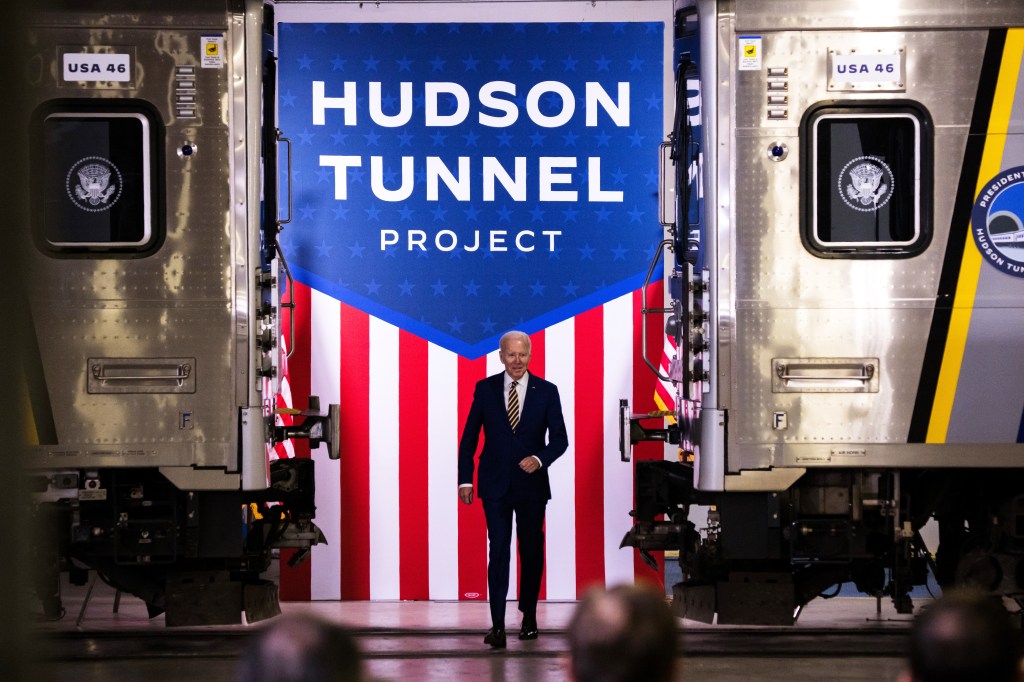The federal government awarded almost $7 billion to the project to build new rail tunnels underneath the Hudson River connecting New York City to New Jersey, Philadelphia, and Washington, D.C., the surest sign yet this incredibly important project will actually get built after decades of talking about it. The $7 billion is also less than half of the total projected $16 billion cost, an astronomical sum that in other countries builds entire rail lines and an amount officials struggle to explain or justify.
The funding was announced by New York Senator Chuck Schumer, a longtime booster of the project, in a tweet on Thursday.
Videos by VICE
The Gateway Program, as it is officially named, calls for a new train tunnel under the Hudson River between New Jersey and New York City for Amtrak and New Jersey Transit commuter trains. After that tunnel and accompanying infrastructure is completed, the existing tunnels will be rehabilitated. The total cost, including the tunnel rehabilitation, is estimated to be more than $16 billion and not be done until 2035. At some $1.5 billion per mile of new track, this would come in second for most expensive train tracks per mile on Earth, behind only the recently-completed East Side Access project in Manhattan, and surpassing New York’s Second Avenue Subway Phases 1 and 2.
After the Hudson Tunnel Project is completed, more trains will be able to run slightly faster and more reliably along the Northeast Corridor and to New Jersey commuter destinations, although it’s not clear if Amtrak or New Jersey will provide funding to run more trains when the tunnels are eventually completed. There will also be important redundancy in the case of Hurricane Sandy-like storms as there is currently only one tunnel in each direction.
For $7 billion, which is just the first tranche of funding for this bafflingly expensive project, other countries could build (and have built) the same number of underground track miles and still have money left over. For example, a new 170-mile high-speed rail line connecting Turin, Italy and Lyon, France with a 35.7-mile underground tunnel—the longest rail tunnel in the world upon completion in 2032—is estimated to cost about $26 billion.
It is not clear why the Hudson River Tunnel project is so expensive. No cost breakdowns are publicly available. No official has ever explained this. Politicians do not question it except as part of an ideological opposition to spending tax dollars on trains. Even experts on U.S. transit costs are baffled. And when I’ve asked the authorities in charge of the project before, they blame inflation and say despite the costs the project is still worth doing and will create a lot of jobs and help the economy. But no project illustrates the harm of cost inflation better than Gateway, a critical, nationally-important infrastructure project that got delayed for decades because politicians couldn’t find the money to pay for it.




